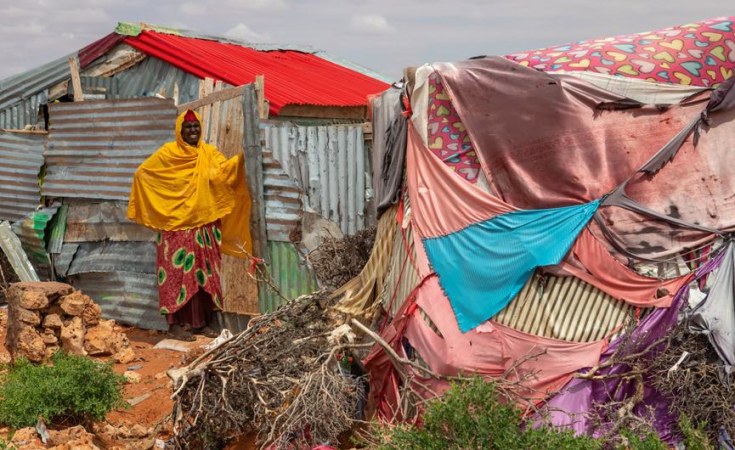Despite record high global human development scores in 2023, disparities between the haves and the have-nots are widening, a new UN report revealed on Wednesday.
The 2023 Human Development Index (HDI) stands at a new high following steep decline during 2020 and 2021 due to the COVID-19 pandemic, according to the UN Development Programme (UNDP).
Rich countries experienced unprecedented development, the Human Development Report details, yet half of the world's poorest nations continue to languish below their pre-COVID crisis levels.
The HDI is a composite of statistics measuring such factors as per capita income, educational attainment and life expectancy.
'Falling short'
"The widening human development gap revealed by the report shows that the two-decade trend of steadily reducing inequalities between wealthy and poor nations is now in reverse," said UNDP Administrator Achim Steiner.
"Despite our deeply interconnected global societies, we are falling short. We must leverage our interdependence as well as our capacities to address our shared and existential challenges and ensure people's aspirations are met," he added, noting a significant human toll behind the statistics.
"The failure of collective action to advance action on climate change, digitalization or poverty and inequality not only hinders human development but also worsens polarization and further erodes trust in people and institutions worldwide."
'Democracy paradox'
The UNDP Human Development Report (HDR) also identified an emerging "democracy paradox", with most of those surveyed expressed support for democracy but also endorsing leaders who may undermine democratic principles.
This paradox, coupled with a sense of powerlessness and a lack of control over government decisions, has fuelled political polarization and inward-looking policy approaches.
This is particularly alarming in light of 2023's record-breaking temperatures which highlight the immediate need for united action to tackle the climate crisis, combined with the new and fast-evolving technological frontier of Artificial Intelligence (AI) which has few regulatory guard rails, UNDP said.
Threat to the common wellbeing
UNDP head Achim Stiner further highlighted that in a world marked by increasing polarization and division, "neglecting to invest in each other poses a serious threat to our wellbeing and security".
"Protectionist approaches cannot address the complex, interconnected challenges we face, including pandemic prevention, climate change, and digital regulation," he said.
He added that interconnected problems require interconnected solutions.
"By adopting an opportunity-driven agenda that emphasizes the benefits of the energy transition and of Artificial Intelligence for human development, we have a chance to break through the current deadlock and reignite a commitment to a shared future."
Country ranking
The 2023-24 Human Development Report identified Switzerland, Norway and Iceland leading the national human development indices, while Central African Republic (CAR), South Sudan and Somalia lagged the furthest behind.
The Democratic People's Republic of Korea (more commonly known as North Korea) and Monaco were not ranked in the list of countries and economies.


